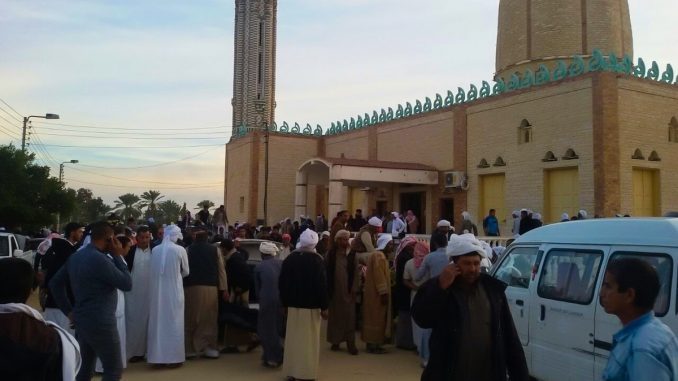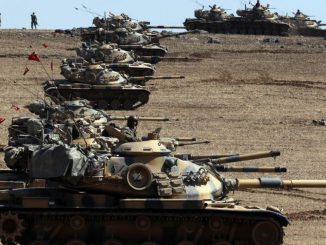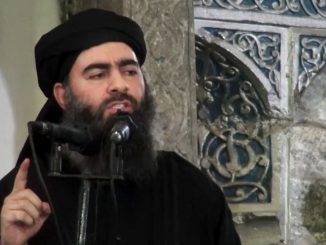
“The Egyptian authorities have allowed local Bedouin tribes to play a role fighting armed groups in the northern Sinai Peninsula following last Friday’s mosque attack near the city of Al-Arish that left more than 300 people dead,”as reported by Anadolu Agency.
Since the military coup in 2013, Sinai has become the epicenter of armed confrontations between Egyptian security personnel and extremist groups based in the region.
While latter accuse local tribes of “collaborating”with Egyptian security forces, the security forces frequently accuse young tribesmen of aiding and abetting Sinai-based militants.
At least 300 people have died in a militant attack on a mosque in Egypt’s restive Sinai peninsula in one of the worst terrorist incidents the country has seen in recent years.
Last Friday, Egypt was rocked at noon by a coordinated assault by gunmen on a mosque in the Sinai Peninsula.Gunmen opened fire on worshippers during Friday noon prayers – the most important period of observance for Muslims, where mosques are usually crowded – killing 235 people and injuring 109 others. During the noon sermon, four off-road vehicles carrying armed men arrived at the al-Rawdah mosque in Bir al-Abed, a small village 40km west of North Sinai’s main city Al-Arish.
According to survivors, militants opened fire from the vehicles and gunned down any people who tried to flee the building. Three police officers on the scene said that also blocked off escape routes from the area by blowing up cars and leaving the burning wrecks blocking the roads.
In this context, local media reported that several meetings took place in the wake of the attack between military officials and tribal leaders with a view to coordinating the fight against Sinai-based militant groups.
The Union of Sinai Tribes called on tribesmen and local youth to coordinate anti-terror operations with the Egyptian army.
On the same day, government spokesman Bassam Radi declared that northern Sinai’s Bedouin tribes had “a proven record in confronting terrorism”.
He went on to assert that any supporting role played by the tribes would be “supervised” by state authorities.
An Egyptian military expert and two Sinai-based tribal chiefs said that the cooperation between the army and tribesmen will be limited to providing intelligence and “maintaining security”.
Tribesmen, they stressed, would not be expected to take part in armed confrontations with militant groups.
However, a media report was released by the the Independent, British daily newspaper, in May 2017 ,that warned from arming local tribes in Sinai. It said that Al-Sisi is employing local militia to offer assistance to the Egyptian security forces in their war against ISIS, which shows how desperate al-Sisi’s war against ISIS has become.
Moreover, it pointed that this, in fact, is one of the most alerting factors in Egypt’s war against terrorism as the Egyptian army is following the same contaminated path as many of its neighbors by using a killer-militia in its war against ISIS in Sinai, especially that counter-insurgency wars always breed corruption and counter-murder.
In the end, the Independent said, “The problem is that Egypt’s out-of-control war against ISIS– and ISIS’s new killer cells west of the canal – may soon make such institutions powerless. And when army militias are now at work to execute the state’s supposed enemies… Well, just think Iraq.”
According to Egyptian government figures,Bedouin tribesmen constitute to account for roughly 90 %of the Sinai Peninsula’s total population of about half a million.
In late 2014, the Egyptian army evacuated the area between Egypt and the neighboring Gaza Strip with the ostensible aim of preventing violence in the border region.
The move led to the displacement of thousands of families living in the area, angering many North Sinai inhabitants. According to local media reports, the people of Sinai remain subject to draconian security procedures as a result of Egypt’s ongoing state of emergency.



